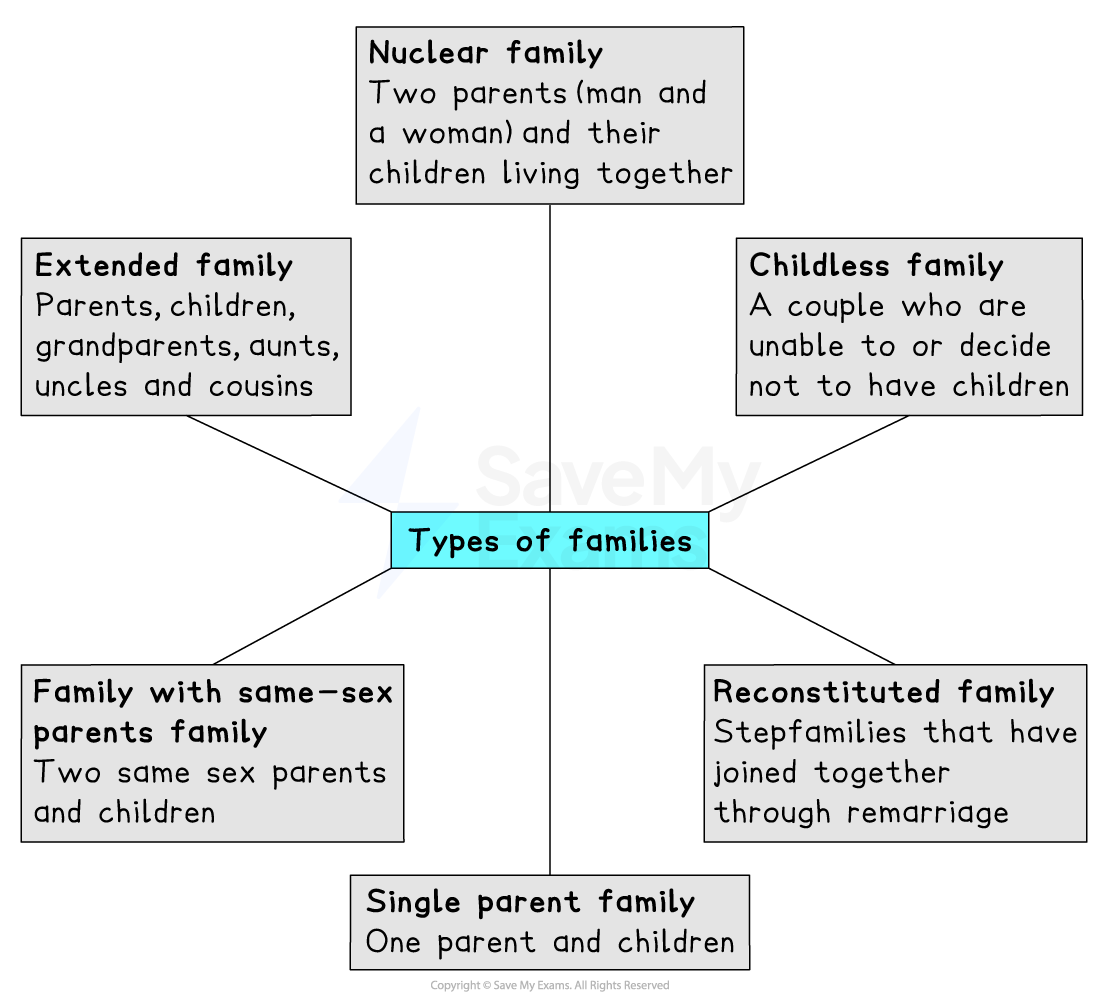What is family? (WJEC Eduqas GCSE Religious Studies): Revision Note
Exam code: C120
Types of family
A family is a group of people who are related by blood, marriage or adoption
Family life has changed over the years, and there are many types of family in modern Britain
A nuclear family is a couple and their children
This is the most common type of family in modern Britain
A single-parent family is one parent with their own child or children
This is caused by factors such as a result of a breakdown in a couple’s relationship or the death of one of the parents
The number of single-parent families has continued to rise in modern Britain, partly as a result of an increase in the divorce rate
A reconstituted family is formed when parents divorce and remarry or cohabit with a new partner
This type of family may be made up of a mix of step-parents and stepchildren
An extended family is where other relatives such as grandparents are included within the family
Extended families living together is very common in many non-Western cultures
A childless family
This is where a married or cohabiting couple are either unable to have children or decide not to have children.
A same-sex family is one where same-sex parents raise children together

Although there are many types of family groups in modern Britain, the family is considered the main building block of society
The family:
Is where all human relationships begin and are developed
Is where the norms and values of society are taught and lived out in practice
Is a place of love and compassion, and children who experience this within their family will grow up to show love and kindness to others
Creates stability and structure for its members
Provides people with security and a sense of belonging
The adults in the family take responsibility for the younger members, and even if you get into trouble, there is support for you
Is considered the best environment to bring up children and meet their needs
Traditional views of the family
The traditional view of the family unit was that:
The man was responsible for providing for the family through work and was seen as the leader of the family
The woman was responsible for domestic life and had the leading role in bringing up children
This traditional view is part of a patriarchal view of society, a society controlled by men
Changing views of the family
As society has changed, the views of family have changed too
A more modern view of the family is to see it as a place where both men and women:
Play equal roles and form a partnership
Share all responsibilities
They are equally responsible for raising their children
Instead of only the man going out to work, it is much more common for the woman to go out to work as well, and to continue working after they have a family
An increasing number of men are taking the lead in raising their children as a stay-at-home parent or “house husband” while their wives or partners go to work
UK law is changing to reflect the changing roles of men and women
In 2015, it became possible for men and women to share parental leave, rather than it automatically being for the mother
Worked Example
What is meant by “family”?
[2 marks]
Answer:
A family is a group of people who are related by blood, marriage or adoption. For example, a nuclear family is a couple and their children.
Examiner Tips and Tricks
The define-type questions are always straightforward if you’ve learned your key terms. Give a simple definition with an example (as in the example above) or a developed definition to get two marks. If your explanation is very simple, you’ll get one mark.

Unlock more, it's free!
Was this revision note helpful?
